The crazy humour of Mike McColl Jones shaped our world, starting with gags for Graham Kennedy
The death of comedic TV writer Mike McColl Jones truly ends an era when absolutely anything could have happened next.
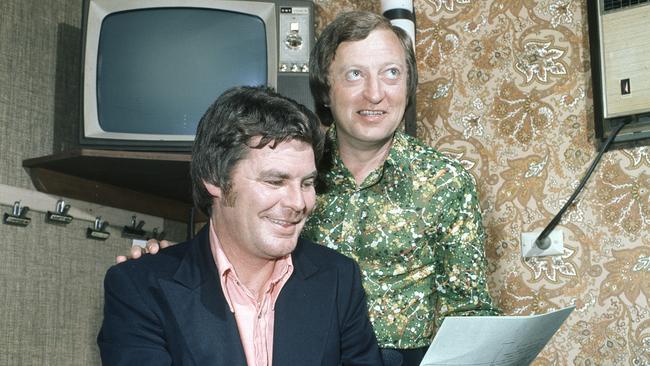
I was away when the great writer Mike McColl Jones died recently, aged 86, almost the last survivor of the great days of live television in this country, which he did so much to create, structure, and curate.
He worked behind the scenes, when for hours at night, with a faint but enduring aftertaste of olde world music hall and variety, TV presenters, then called hosts, comedians, jugglers, ventriloquists and their talking dolls, singers and dancers kept reintroducing classic tomfoolery to a truly popular audience.
As a writer McColl Jones presided over an inspired mix of celebrity interviews, stunts, sketches, what old vaudevillians called “bits”, that shared a body of traditional stock material, surreal quizzes, song parodies, bizarre games and audience participation, fashion parades, stunts and buffoonery that lasted for years. It was an era of massive salaries, scandals and expense accounts that boggled the imagination.
He started with Graham Kennedy’s In Melbourne Tonight in the early 1960s, one of the only writers to survive the King’s disdain and derision – the great improviser loved lacerating them on air, sometimes naming them and tearing up their scripts in front of the audience.
When IMT ended in late 1969, McColl Jones continued with The Graham Kennedy Show, pouring out the gags. Originally titled The Graham Kennedy Daylight Saving Show, Kennedy said, “If they put all that on the screen, the words ‘Graham Kennedy’ would not be big enough.”
He continued to influence popular culture with the Don Lane Show from 1975, the brash New Yorker and his sidekick Bert Newton, allowed “to wear his funny hat” (as Bert self-deprecatingly called his talent), developing an inspired burst of clowning, motivated by the mercurial and shameless Newton, which went on for years. McColl Jones in the wings of course, or more particularly positioned next to Camera 3, just metres from the host set, watching the show progress, his usual vantage point for decades.
As Steve Vizard said in his recent droll obituary for the writer, “From there, Mike watched his gags performed for the first and only time, as they recorded a Moon landing, Nixon and Watergate, royal tours and presidential visits, a succession of Australian PMs from Robert Menzies to John Howard, and the evolution of technology from fixed phones and fax machines to mobile phones, from black-and-white television to colour, and a million other events that changed our lives.”
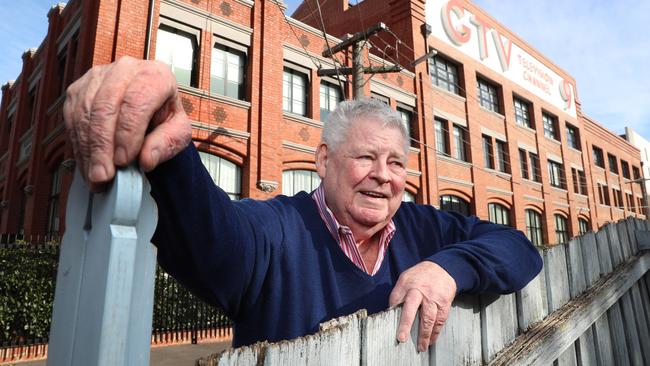
Tonight With Bert Newton followed the Lane show, and about a thousand episodes of Tonight Live With Steve Vizard. There were 25 Logies as well and two Royal Command Performances for Queen Elizabeth and Prince Charles and Princess Di. But Kennedy remained the abiding presence in the writer’s life, composing “hundreds of thousands” of lines for him. He first became aware of the compere while watching him at home, intrigued and spellbound, like most of Melbourne.
Then in 1963 the former Xavier College boy was spending time as a salesman in gentleman’s suits at the Myer Emporium.
He persuaded friends from Xavier to smuggle him into the Channel 9 studio so he could see “this amazing man with the bulbous eyes who seemed to know precisely what camera was on him, and where the others were, with a mind that was racing so fast that only he knew what was going to happen.”
He had no ambition to be a writer but submitted some sketches to the program. Gradually some pieces were used until, one day, station manager Colin Bennett called him in and hired Mc Coll Jones on a month’s trial.
He met Graham and was taken to lunch by one of the other writers. At one thirty, he asked if they shouldn’t be making tracks back to the office. “Nah, stuff him,” the more senior writer said of Graham Kennedy. “He didn’t use any of my material last night. He can get out there and do whatever he likes.”
McColl Jones, on trial, instead went back to Nine sensing an opportunity, wrote some material and submitted it. “He used a couple of things,” recalled the writer. “He gradually used some more and a one month trial went into some years.”
Writing for almost anyone who appeared on the Box, as we still called television, it was as if this mild mannered, charming man set about a joyous destruction of the regulated universe in which the rest of us lived, subservient, submissive and suburban.
“I think there’s a bit of rebel in all of us – certainly there is in me,” he said in his final interview from a Baptist Care Home, still chirpy and looking for the humorous and quirky as he spoke. “I enjoyed pricking pomposity and big business through words. Probably the most rewarding thing was being able to do something under the cloak of anonymity – no one knew where the jokes and content was coming from, and I loved it that way.”
Kennedy liked to tell McColl Jones that he was only employed by Nine to get him into the Supreme Court. “We were always writing apologies,” the writer told me, enormously helpful as I worked on my biography of Kennedy. “Things got really bad when the public started coming into the station just to see the canteen. We used to have skeletons in there to make a point about the lousy service.” The writer recalled the Channel Nine canteen suing the show three times.
“Unsuccessfully,” he said. “The first joke that did it was, ‘Before the flies land on the food they have to have tetanus injections!’ It got so bad Graham and I were warned by Colin Bednall not to walk past the canteen for our own safety.” The writer was once chased down the corridor by a canteen proprietor wielding a meat cleaver.
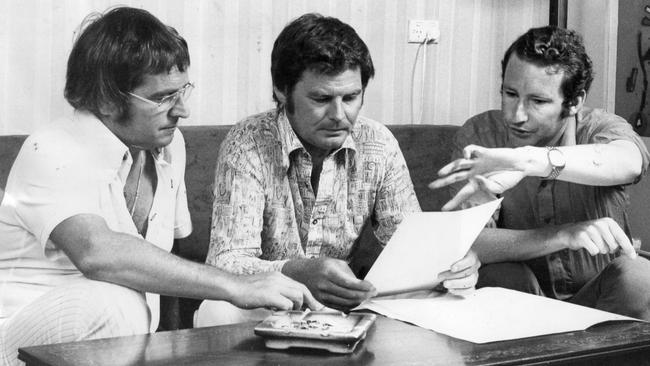
In that final interview he still recalled his first joke for a long-running segment on IMT called Headlines of the Future from more than 60 years earlier, Kennedy holding a mock-up newspaper reading the headlines from 30 years hence. The gag: “Today Elizabeth Taylor celebrated her golden wedding anniversary – 50 husbands.”
Sometimes though, his job with Kennedy as writer was simply to create chaos. “Graham not only capitalised on something that went wrong, but he often buggered it up on purpose so that he could take advantage of the situation.” Once before a sketch in which he had only tepid confidence, he said to McColl Jones, “If you see me looking at you, push the set over.” Graham did and so did the writer and Graham took over pulling the set to pieces and even ripped up the idiot sheets.
McColl Jones wrote for and nurtured the talent of other presenters, too, though Kennedy was the most significant.
“I will never forget what I was lucky enough to learn from Graham,” he once wrote. “Always carry a notebook and pen; ask questions if you don’t understand; be punctual; how to walk without making a noise; how to treat every microphone as ‘live’; how to observe silence when others were speaking; show respect; be loyal – if you don’t like the show you’re working on, get out and let someone in who does.”
What McColl Jones really developed over many years was a sophisticated – though he could be low brow, no joke out of his omnivorous reach – kind of language play that could not help but reveal a culture’s fears, values, hopes and even our sins, in literary terms. He helped shape our world in no small way through his countless jokes, gags, stunts, asides, and stories, whether real or fantastical. Like a character from a Samuel Beckett play he was “in words, made of words”.
His writing vacillated between the familiar and the strange; ordinary, mundane things took on bizarre, even magical qualities. McColl Jones, like the comics he served for decades, trapped us in wonder, second guessing his punchlines always difficult, even when they were relentlessly corny.
Somehow, he always managed to link the familiar with the mysteriously entertaining. As Vizard said in his recent obituary his “great ability as a comedy writer was to view the world in jarringly unexpected ways”. (Vizard mentions that his early mentor the legendary Freddie Parsons who had written for vaudeville great Roy Rene, once remarked that only McColl’s mind could have created gags like “Thirty thousand troops arrived in New York today to entertain Bob Hope” or “The Leaning Tower of Pisa was straightened today… unfortunately Italy is now on a tilt”.)
No wonder so many TV entertainers wanted him in their corner.
McColl Jones survived them all, some just disappearing into the long night of the ratings, others such as Bert Newton surviving almost as long as TV itself. And it’s also unlikely we will see the likes of Mike McColl Jones again as we also farewell the increasingly characterless notion of free-to-air TV, and an increasingly antiquated linear broadcasting system .
Henri Bergson, in his famous essay on the comic, said, “By laughter, society avenges itself for the liberties taken with it.” And that’s what the lovely writer did for us, reminding us that silliness is sometimes the best response to a universe we cannot understand.


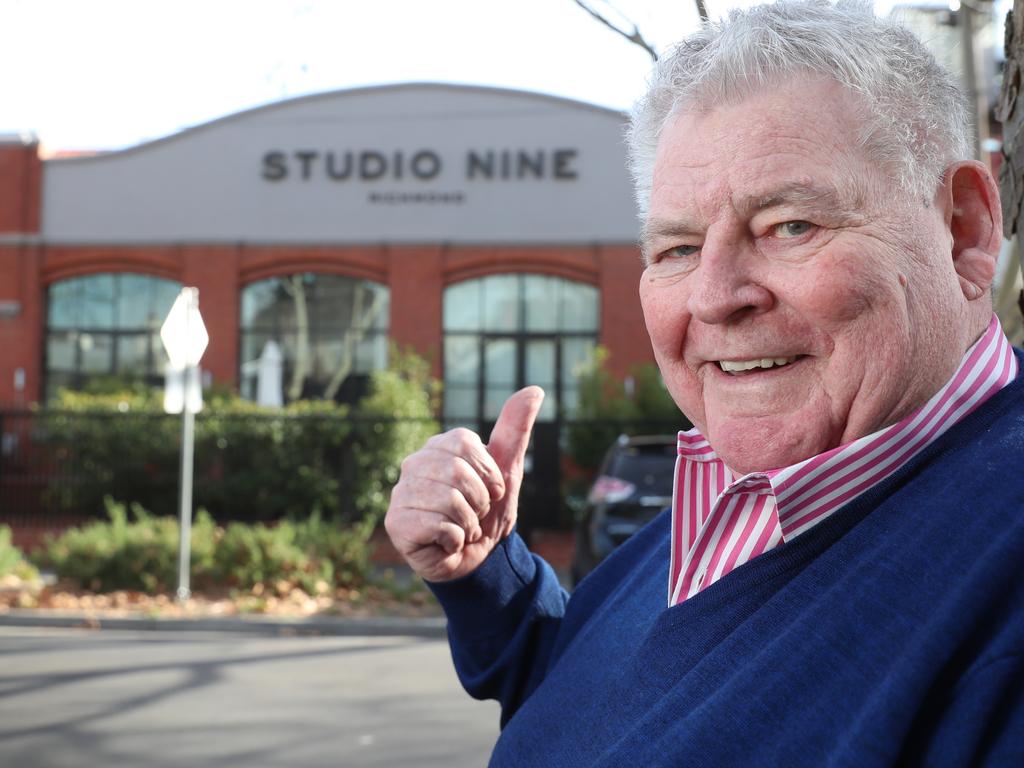
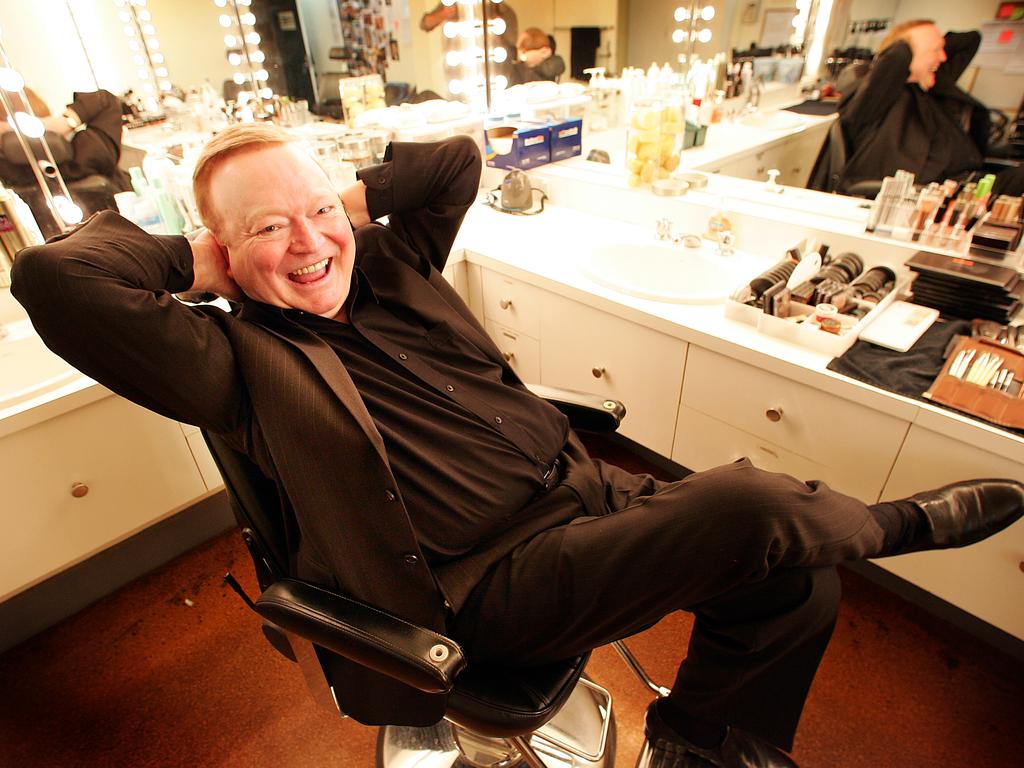

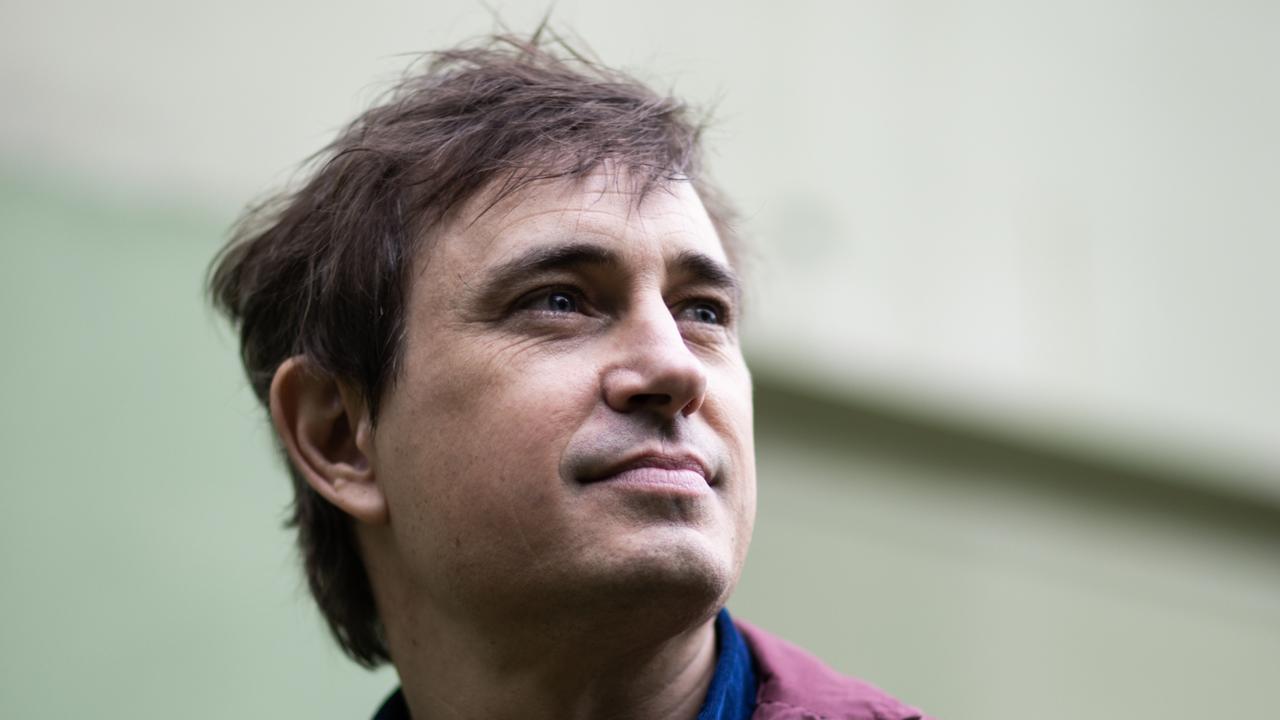
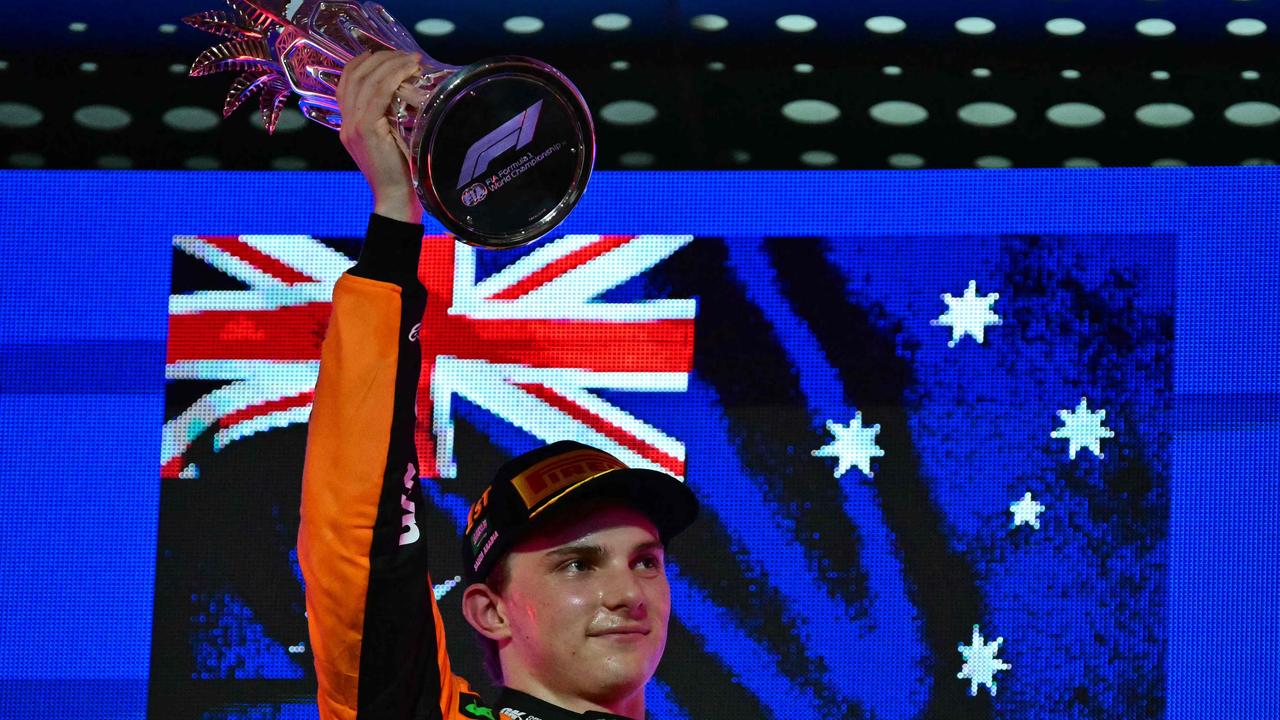
To join the conversation, please log in. Don't have an account? Register
Join the conversation, you are commenting as Logout